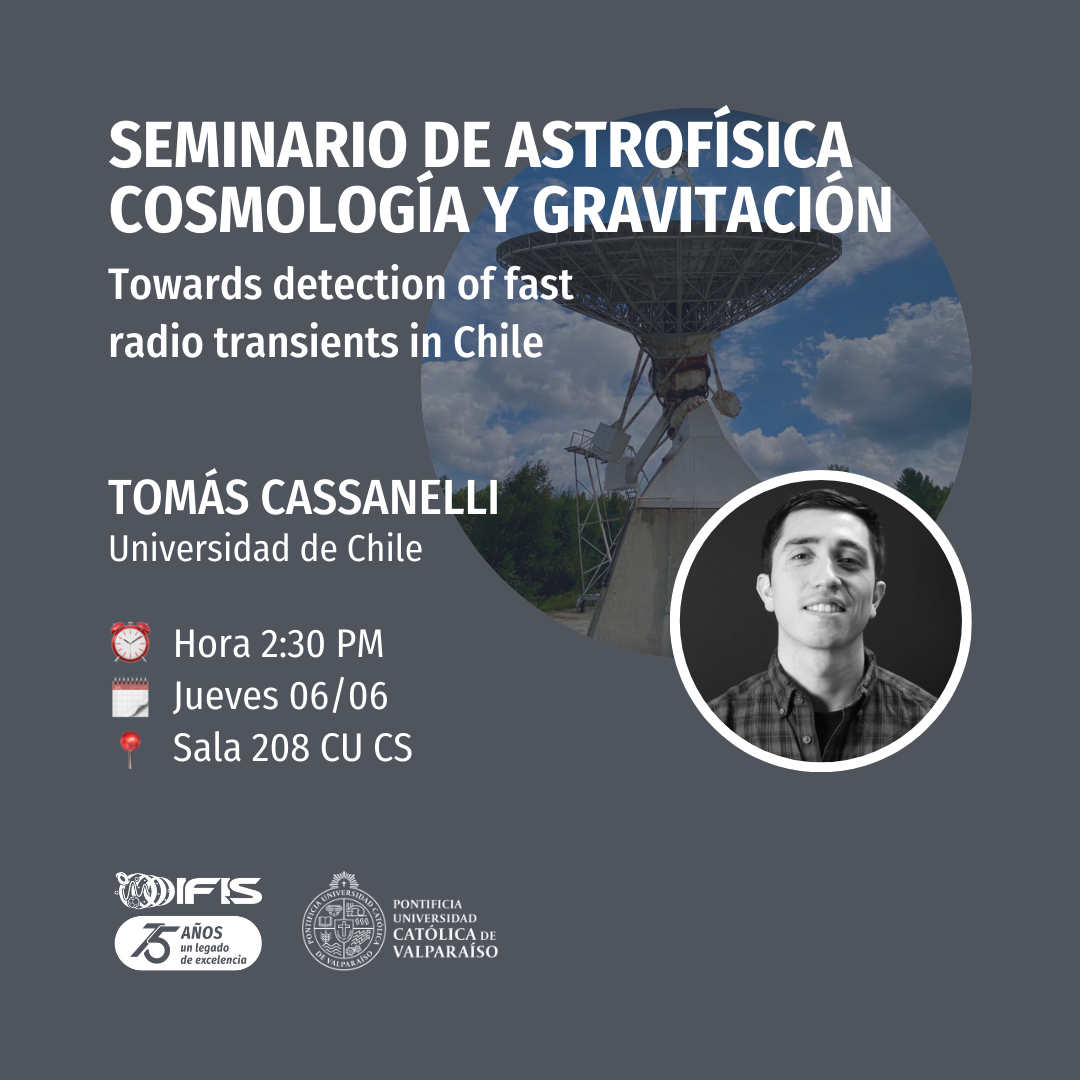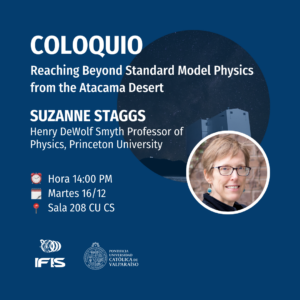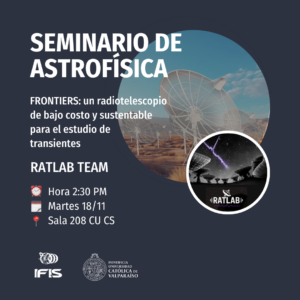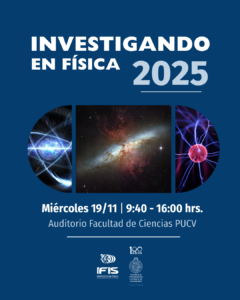
Este jueves 6 de junio tenemos Seminario de Astrofísica, Cosmología y Gravitación en el IFIS. Tomás Cassanelli de la Universidad de Chile presenta “Towards detection of fast radio transients in Chile” desde las 14:30 en la Sala 208 de la Facultad de Ciencias PUCV.
Compartimos el abstract del seminario:
Fast radio bursts are millisecond duration flashes of coherent radio emission, observed in the range of 0.1–10 GHz, with no known astrophysical counterpart or defined mechanism. Despite the fact that FRB science is in a mature state with over ~thousands detected (few detections per week but mostly in the northern hemisphere), we still don’t know their true nature. Since 2012 radio facilities have been able to distinguish between two types of events, although their population are still under debate, repeating (4–10 %) and one-offs FRBs. Detecting FRBs, repeating and/or one-offs, can help us understand their astrophysical origin, properties of matter and space interacting with their radiation, and potentially the cosmological evolution of the Universe (their association to a galactic host is needed). Here I will present two projects to actively search for FRB emission in Chile: Canadian-Chilean array for radio transient studies (CHARTS), and a new visiting instrument for Gemini South, the Italian quantum eye (Iqueye; capable of detecting transient-like emission). Project status, potential science, and future of these projects, will be discussed, within our main goals: detect, localize, and characterize FRB emission in the southern hemisphere, and bring to Chile FRB science.



